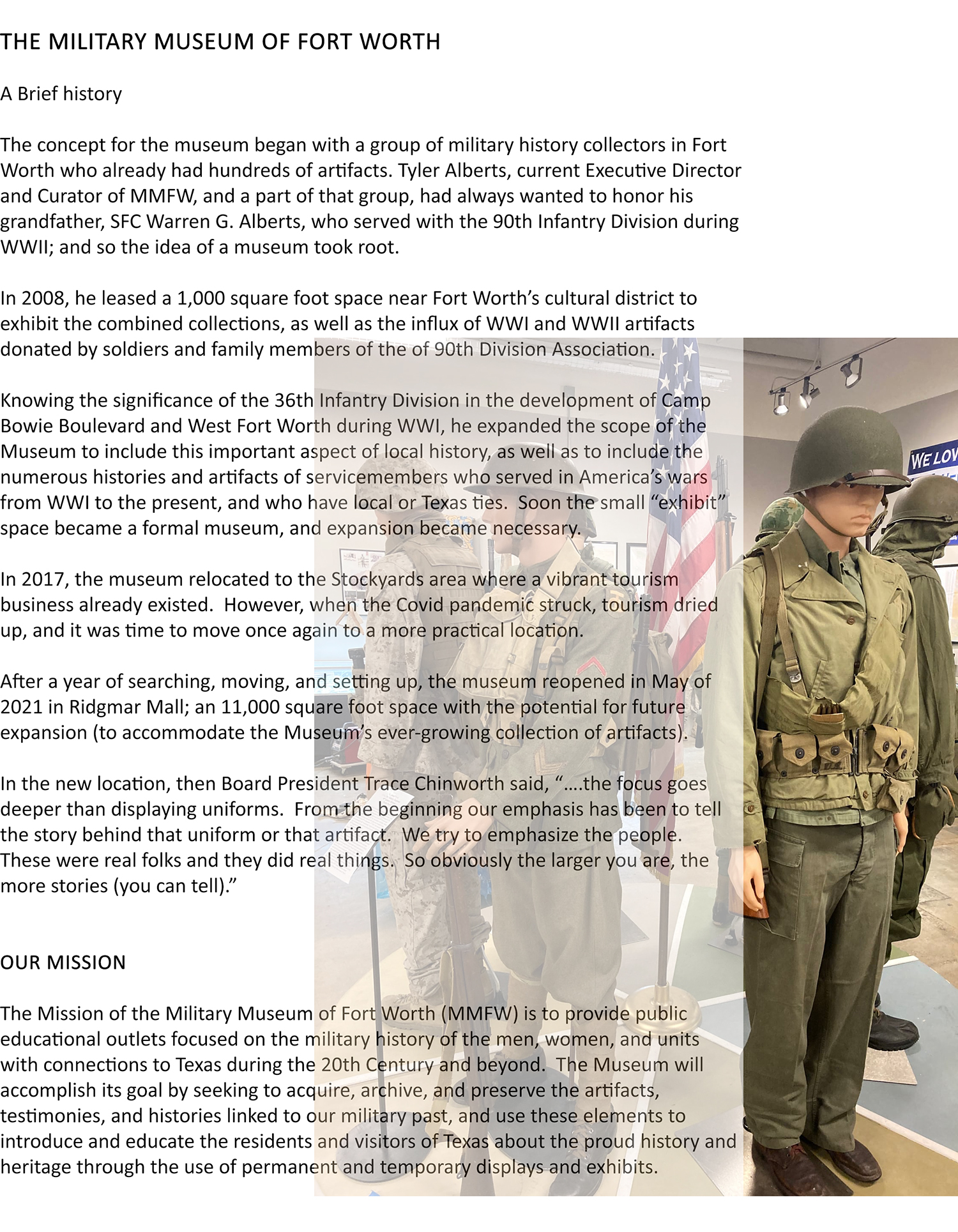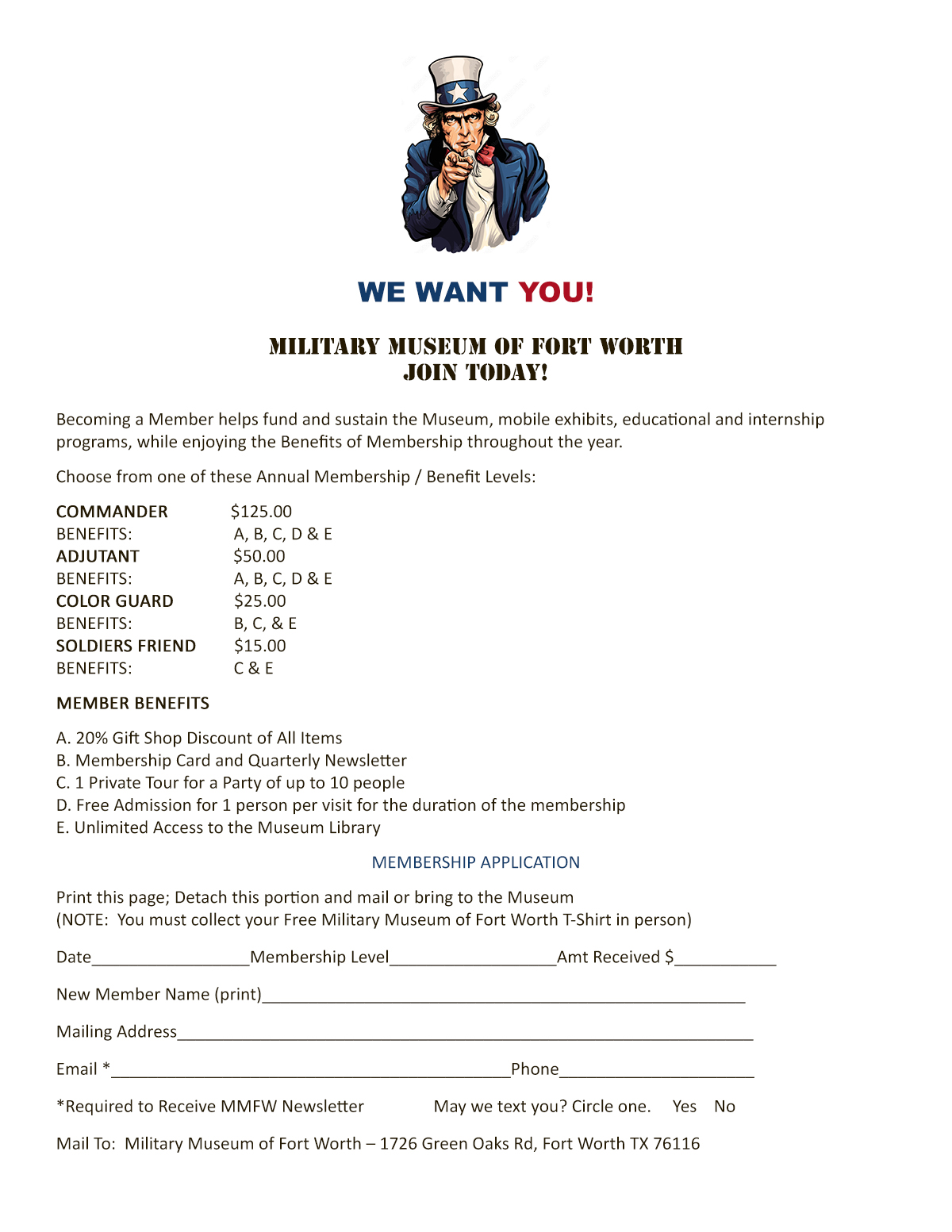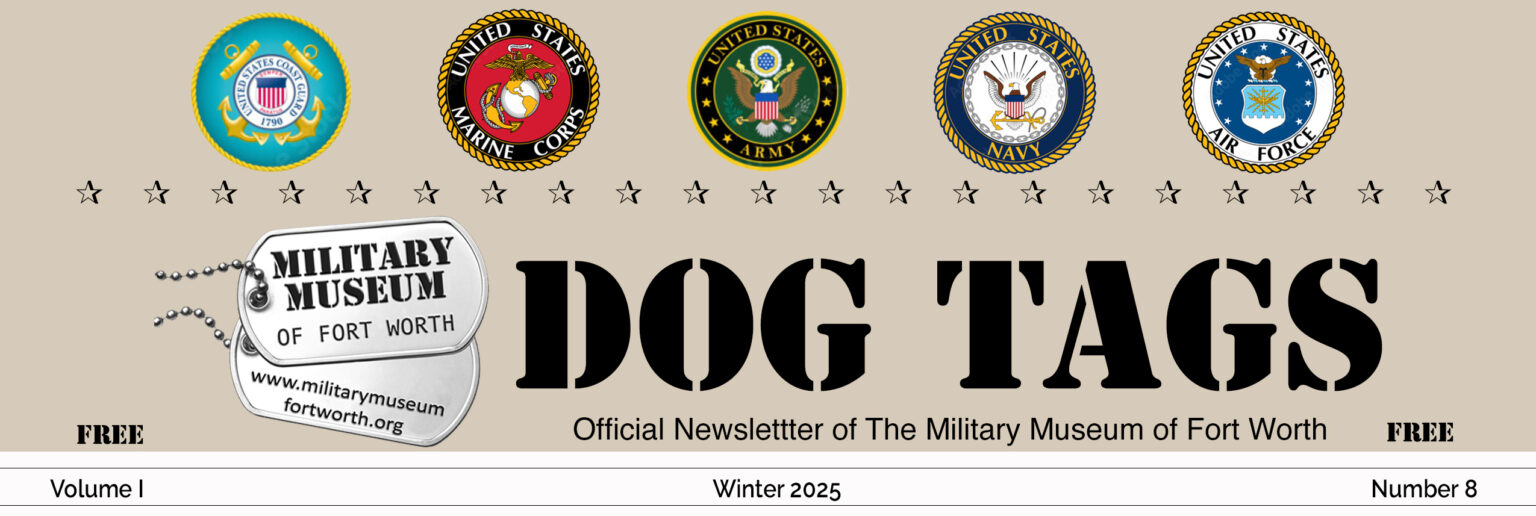
SIT REP (Situation Report)
Rodger W Brownlee
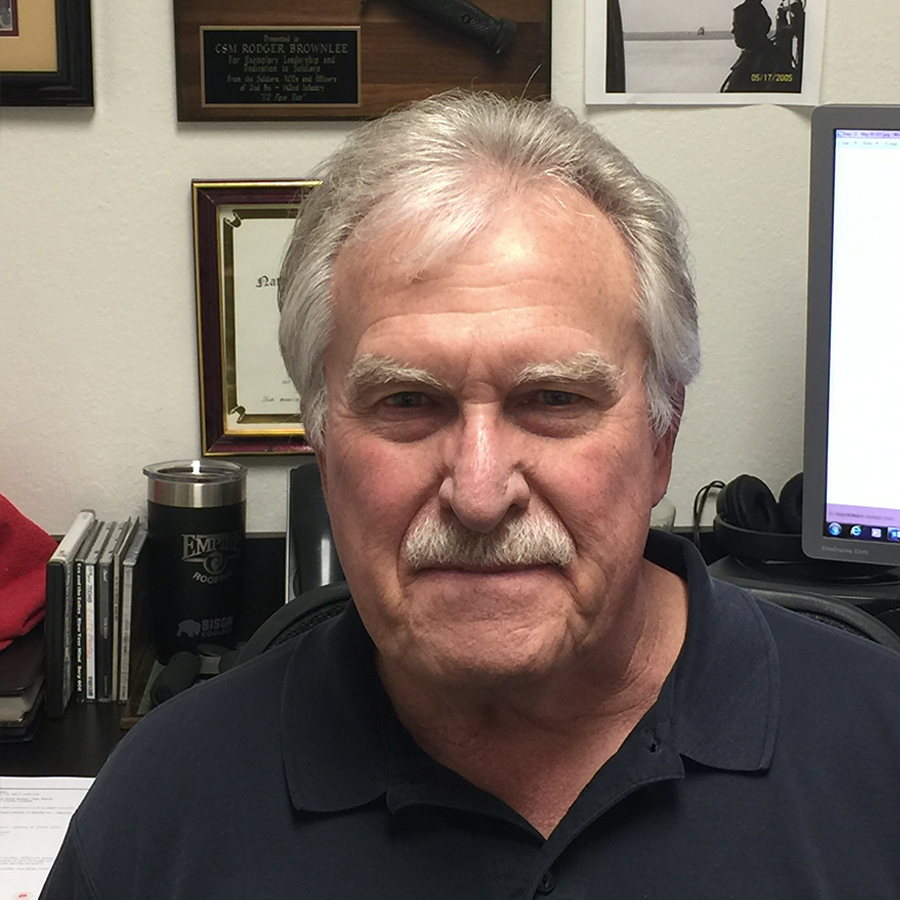 We’re in the middle of the Winter doldrums, cabin bound for the most part, but in light of recent happenings on the national scene, it feels like Spring, with a Springlike renewal of our national spirit. We can spend some time indoors in contemplation of our mission at the Military Museum of Fort Worth; to honor and celebrate the sacrifice of those who have shielded this country and the great experiment of a Constitutional Republic. We can see this sacrifice manifested once again in the peaceful transfer of power in our government. So, if we need proof that what these heroes did was worth the effort, we have just witnessed it for ourselves.
We’re in the middle of the Winter doldrums, cabin bound for the most part, but in light of recent happenings on the national scene, it feels like Spring, with a Springlike renewal of our national spirit. We can spend some time indoors in contemplation of our mission at the Military Museum of Fort Worth; to honor and celebrate the sacrifice of those who have shielded this country and the great experiment of a Constitutional Republic. We can see this sacrifice manifested once again in the peaceful transfer of power in our government. So, if we need proof that what these heroes did was worth the effort, we have just witnessed it for ourselves.
Board Member James Warner has made a suggestion that is heartily endorsed by all other Board Members, that we extend an open invitation to our new President, Donald Trump, to come visit and do a tour of the Museum. And who knows, given his penchant for honoring the military and doing the unexpected, it is worth a try. So, if you’re out there, Mr. President, expect an invitation coming your way soon.
We can also use this time to reflect and assess the status of our museum and plan for its future. So, let’s start at the beginning. The Museum and its content have never been better and only continues to improve under Curator, Tyler Albert’s, constant attention. It doesn’t hurt that we continue to receive new, exciting artifacts that add to the story of those whom we honor and celebrate.
A recent example is the donation of the personal sidearm of an 82nd Airborne trooper, PFC Leonard Trimble. Trimble was wounded while crossing the Waal River at Nijmegen during operation Market Garden in WWII. What makes this .45 automatic pistol unique are the field-fabricated plexiglass grips, beneath which are photos of Trimble’s wife and child. This is the very pistol Trimble carried during the daring exploits of his regiment. And if that wasn’t enough, even more interesting is the fact that Leonard Trimble was a Fort Worth native, and mentioned by name in the book, “More Than Courage”, an excellent combat history of the 504th Parachute Infantry Regiment. MMFW Curator, Tyler Alberts, is a friend of the book’s author, Phil Nordyke, and is in contact with him for more information about Leonard Trimble. Tyler will use the information for an upcoming MMFW display of Trimble, in which the .45 Automatic Pistol will be the centerpiece. Tyler says perhaps Phil Nordyke will be available and on-hand for the unveiling of the display.
On a more urgent note, a student of military strategy knows that doctrine dictates, in a hypothetical situation, that when a unit takes its objective, it consolidates and improves its positions. If the unit intends to hold its ground and retain this position, it will depend on a steady flow of supply and support for sustenance. If the supply line becomes tenuous, and slows to a trickle or stops altogether, then the position becomes untenable, and a decision has to be made whether to tough it out and hope that conditions will improve, or begin planning an orderly, controlled withdrawal.
This is a simplistic tactical scenario, examples of which can be found throughout military history.
Unfortunately, in a real, non-hypothetical world, this is exactly the situation the Military Museum of Fort Worth finds itself in today. Since moving to our current location in Ridgmar Mall, over three years ago, under the care of our Curator and Board of Directors, the Museum has continued to “improve its position”, spending countless man-hours and material adding to its “world-class” content.
SIT REP CONT.
This has been a constant, ongoing process, expecting the Mall, ostensibly being developed as an entertainment and dining venue, would continue to improve its position; improvements that would generate the necessary visitor stream, and that would result in an adequate revenue flow that would meet basic operating expenses. Sadly, the opposite has been the case. The Mall’s few tenants that previously attracted visitors and provided collateral guests for MMFW, are closing, or have already closed. The dozens of mall visitors who naturally flowed into the museum while at the mall have turned into a trickle. Of the four days a week that the Museum operates, many days now see few or no visitors, and consequently generate little or no revenue. To exacerbate this dilemma, rent and utility costs continue to increase. So the upshot is that the Museum finds itself in a precarious, practically untenable position similar to the military outpost in the scenario depicted above. We are working on an OPLAN (operational plan) to deal with our situation. In the meantime, WE NEED YOUR HELP!
So this is a Call To Action; a distress signal marked URGENT! The Museum needs sustenance from all who Love the Military, Love our Veterans, Love our History, and Love our Museum. Enlist your friends and DONATE TODAY! WE NEED YOU!
On a more positive note, restoration work on our M3 White halftrack continues apace. We have completed the purchase of the new engine and have purchased a new wiring harness. Volunteers are currently at work removing rust and making all moving parts operational. We hope to have the halftrack running and in working order in the not-too-distant future; we will keep you informed of our progress.
Hope you had a chance to visit our display at the Fort Worth Stock Show and Rodeo.
OUT HERE
| Tyler Alberts | Co-Founder/Executive Director |
| Rodger W Brownlee | President/Newsletter Editor |
| John Kalvelege | Vice-President Director |
| Karen Garrison | Media and Communications Director |
| Trace Chinworth | Director |
| John T. Furlow | Treasurer |
| Mike Zamulinski | Director |
| Bill Leaf | Special Projects/Board Member |
| Ron Lane | Board Member |
| Stacey Sokulsky | Board Member |
| Dale Wagner | Board Member |
| James Warner | Board Member |
| VOLUNTEERS | |
| Randie Debnar | Volunteer |
| Colin Fish | Volunteer |
| Donna Kelly | Volunteer |
One Of The “T.O. BOYS” SGT EMSLEY C MEEK JR 90th Signal Co. 90th ID 1942/1945
Rodger W Brownlee
 EDITOR'S NOTE: This is Part 3 of a 3-part story depicting the life and participation in WWII of Emsley C Meek Junior. Parts 1 and 2 were featured in the Spring and Summer 2024 editions of Dog Tags.
EDITOR'S NOTE: This is Part 3 of a 3-part story depicting the life and participation in WWII of Emsley C Meek Junior. Parts 1 and 2 were featured in the Spring and Summer 2024 editions of Dog Tags.
At this point in the story, E.C. has participated in D-Day, the Battle of Normandy, the Breakout and Battle of the Falaise Gap. These campaigns were followed by the battles around Metz, Alsace-Lorraine, both crossings of the Moselle River, and the Battle of The Bulge.
At this point of the story, the end of the war, the end was in sight, and E.C. remained unscathed physically. mentally and spiritually, he had been deeply wounded, scars that defined him, and would remain with him the rest of his life. We pick up the story......
PART 3
April / May was more of the same; continuous movement to new locations with a new mission to reach Czechoslovakia, which was accomplished on the 19th, effectively spitting Germany in two. (1)
The Division’s advance continued parallel to the Czech border into Bavaria. Waldsassen, Tirschenreuth, Weiden, and Cham were over-run in rapid succession. American POWs were rescued at Fuchsmuhl, and political prisoners in the Flossenberg concentration camp were liberated. The 11th Panzer Division surrendered en-masse on 4 May……the division attacked into Czechoslovakia then set up and held a restraining line awaiting juncture with the Red Army. They were moving out on May 7, when they were halted almost immediately. Division HQ had received a message of historic importance; the German High Command had unconditionally surrendered of all their armed forces. All hostilities officially ceased on 8 May, and the Division was moved to its occupational area of Weiden Germany on 16/17 May.” (1)
A few days earlier, E. C. had written home:
May 4, 1945, Alm Germany:
“Dear Bud, Sis & Little Niece……How’s everything with you? I’m still goin strong and from the way everything sounds this things just about folded up (I hope)……”
Not mentioned in this last letter was the fact that on 2 May, E.C. had reached his 23rd birthday.
After the Surrender, he wrote the following:
May 18, 1945, somewhere in Check:
“Hello……The war over here is over except for mopping up a few scattered pockets. We don’t feel much different than we did when it was still going on. We won’t get to come home for a good long while anyway, and there’s also a chance that we may go to the S.P. (South Pacific)
At the present……I’m living with an old couple and they’re sure nice to us……They sure have some good lookin gals here. Some of them put on their costumes and parade around some……Look in the world books and you’ll see what I mean……”
June 24, 1945, Weiden Germany
“……We’re in barracks now……and everything’s goin smooth. I don’t know when I’ll get to come home……between now and Christmas I hope. And after that, the South Pacific from the way it sounds……I guess Kenneth (3) will be back in the U.S. before long. Poor guy, he was hurt a lot worse than he let on he was……you just can’t imagine what a hunk of shrapnel can do. The worst part is you just can’t get away from it. I’ve had it sprinkle me lots of times and even (been) knocked down by shells, but I’m just one of the lucky ones. When the war ended, I was just about a nervous wreck.
I got a Bronze Star for the first Mozelle (I know it’s not spelled right but you can tell what it is). It was so hot there that no one but the infantry and Signal Company done any work there for a couple of days. The Krauts were throwing everything they had at us……
So I’m gonna be an uncle again…and I hope it’s a boy too; I kinda envy that Bud. I wish to hell I was back there in a baby factory makin babies or something; boy this place is sure dead and we stick our necks out to even look at a woman. And they don’t appeal to me anyway so I’ll just wait’ll I get home.,,,,,
Don’t listen to all that stuff that goes around. These boys are a swell bunch of kids and all they’re asking is just a chance to get back to where they started from. They’re killers, gamblers, thieves, and everything else, but when it comes to killing, it was either kill or get killed. They’re just not going to take anyones lip when they get back, that’s all. I know its going to be just like it was when the last war was over. The people promise the soldiers everything……then what do they get nothin but a hard name, but there’s nothin that can be done about that……”
This is one of the longest letters E. C. wrote during the war, and is telling in that he takes the time to expand on his thoughts about being in combat, specifically being under shellfire, when commenting on the injuries to his younger brother, Kenneth (3)(who was relatively new to the war when he was wounded) and admitting to the state of his own nerves.
His frustration is obvious for the delay at his being able to return home. He speaks of the varied, checkered backgrounds of his fellow soldiers, and praises them for doing their duty, nevertheless. He then opines on the expectations they have once they return home, but expresses doubt that those expectations will be fulfilled; much of this based on what his own father had experienced coming home from WW I. This is a rare glimpse into E.C.’s inner thoughts and feelings
July 15, 1945, Germany
“Dear Bud, Vi & Belle: How’s every thing goin?......I don’t know when well get to leave here it’ll be sometime around the first of the year tho. The longer we stay here the less the chances that we’ll go to the S. P. which is OK by me. A lot of high pointers are leaving this outfit and going to other divisions and the low pointers out of other divisions are coming in to take their places so that means the old 90th stays in tact……I’ve got more damned junk than I can carry home and it's stuff that I can’t send.
I’d better quit. We’re having a USO show today Jack Benny is in it. Love E.C.
In August, only a couple of weeks after this letter, Atomic bombs were dropped on Hiroshima and Nagasaki Japan, and the war in the Pacific was over, the formal surrender being signed 2 September, 1945.
The world war was over, and so was any reason to hold back troops for possible use in the Pacific; his final letter home from Europe was a mixture of frustration and guarded optimism.
October 3, 1945, France
“……they’re sure takin their time. They did get us out of Germany but it didn’t help me much. We’re here in France now about 20 miles from Reims. Well I’m OK and that’s about all I know. Don’t write, Love E.C.
"T.O. BOYS" Cont.
Adding “Don’t Write”, indicates he was finally in transit at this point, much like when he first joined the Army and had no permanent station. The return address on his envelope simply listed a “Field Artillery Service Battery”, the type of unit typically used to gather soldiers for their trips home; and come home he did. When discharged, he had been in the Army a little over three years, had served 12 months in combat; the entire duration from D-Day to VE Day, plus an additional 5 months of occupation duty in the ETO.
E.C. returned home to a country still mourning its losses, but full of thanksgiving and hope for the future. Most returning soldiers received only the celebrations provided by their family and friends, and for soldiers like E.C., that was celebration enough. Like most returning veterans, they simply wanted to pick up the threads of their interrupted lives, and begin to fulfill the plans and dreams that had seen them through the days and nights of the arduous ordeal they had just been through. They simply wanted to create their own version of the cherished American dream.
All these things seemed within reach; E. C. married and started his family that would eventually grow to two sons and a daughter. Lacking a formal education beyond the 10th grade, his prospects for gainful employment were limited, but he was a better than average mechanic, and so made his living with his hands when nothing else was available, he would eventually get a job as groundskeeper at the Bell Aircraft plant in Hurst TX, but being employed was always a tenuous undertaking for him.
He was forever restless; three years of moving practically on a daily basis left him with the constant need to move his “C.P.”, so he was never in one place for very long, moving his family from place to place in search of that perfect spot. He never found it, but never strayed very far from the area he had often dreamed of around Grapevine TX, or Eagle Mountain Lake, nor away from his extended family of mother, brothers, and sisters.
E.C. could have been called one of the lucky ones. In 2012, Robert MacLean, another member of the 90th Signal Company, wrote to the author: “I, like E.C. made it from Utah Beach to Czechoslovakia without serious injury. It seems E.C. and I was with the 90th Signal from start to finish.” (including starting from Camp Barkley). For a 17 thousand man Division that suffered over 21 thousand casualties, killed, wounded, and missing, his luck had indeed been extraordinary.
But as with all soldiers in all wars, the wounds E.C. bore were not physical or visible, and though he may have left the battlefields of Europe an ocean and a half continent away, the ghosts of the enemy and the battles he witnessed followed him home. The shellings, bombings, snipers, and strafings with their cacophony of gunfire and explosions, and the fields of dead bodies occupied a space in his head that nothing could remove. E.C.s wife, Sarah, told of the almost nightly episodes of lying in bed asleep when; “...he would wake me up yelling and trying to drag me off the bed into a foxhole”, because his dreams were being bombarded with artillery fire, or he was being strafed and bombed by German aircraft, or pursued by fire from an MG 42 with its staccato chatter which sounded like ripping cloth.
In his dreams, he revisited these recurring nightmares of the vivid scenes, events, sounds and smells he had experienced; a condition now known as “Post Traumatic Stress Disorder”, or PTSD. In E.C.’s rural world, however, there were no facilities available to seek treatment of any kind. His only readily available source of solace to blot out these horrors was drink.
From the beginning of his return home, the celebratory drinks had become a daily balm for the case of nerves and unwelcome images that crowded in during daytime and visited his nighttime hours, often blotting out his aspiration and dreams for a normal life.
This cycle of self-treatment eventually reached a point that began to affect every aspect of his life; his family, his health, and his job. There were periods of blackouts with “lost” days, car accidents, and lost memory.
In later years, he tragically lost his teenage son to accidental asphyxiation, and not much later, his wife Sarah to cancer. His other two children had grown, moved, and started families of their own.
E.C. was living alone in an old farm house in N Tarrant county, when in 1978, the author came across some WWII “souvenirs” E.C. had given him when he was a little boy. Calling his mother to get E.C.’s phone number, he was able to make contact with his Uncle*. When he answered, E.C. was lucid but sounded tired. I hadn’t spoken to him in a couple of years, and he perked up when he learned it was me calling. I told him I had come across those souvenirs he had given me so long ago, and had been thinking about all those stories he had told me about the war. I apologized for losing touch for so many years, and told him he had always been my hero. I could hear him choking up a little on the other end of the line, and he finally said, “I’m not a hero; but that’s really nice for you to say that”. I told him I had a small tape recorder and wanted to come visit him; we would sit down and record those stories if he was willing to do so. He expressed surprise that I wanted to do that, and doubted that the stories would be of interest to anyone; so I was very pleased when he agreed without further protest; we agreed on a date a couple of weeks out.
He expressed his gratitude for my interest, even sounding a little excited at the prospect, and we said our farewells. I immediately began thinking about an outline for questions I wanted to ask.
About ten days later, I received a phone call from my Mother, who was in New York with my sisters at the time, telling me that E.C. was in the VA hospital in Dallas in serious condition. She flew down the following day, I picked her up at Love Field, and we went to see E.C.
He had been admitted to the hospital in a coma from liver failure, and was hooked up to life support. Every day after work, I drove my Mother from Fort Worth to Dallas to visit her little brother; but after a week she had to go home for medical reasons of her own. E.C. died a few days later, he never woke from his coma, and we never got to tell him goodbye.
SGT Emsley C Meek, Jr was only 56 years old when he died, .……another heartbreaking casualty of the war he had already helped to win thirty-three years earlier; and which had finally ended for him.
A display of E.C.’s story and artifacts can be viewed in the 90th Division section of Military Museum of Fort Worth.
Author’s Note: *Emsley C Meek, Junior was my Uncle, the second of 6 Meek children after my Mother, Viola Kathryn.
The stories told in the text were those he told to me, when I was 10 / 11 years old, and the artifacts on display at the museum were those given to me by him during those storytellings.
The excerpts from letters are from those received by my Mother and Father during the war. They are the “Bud and Sis (or Vi / Viola)” being addressed. “Belle” is my older sister born in 1943, and “Frisky” was their little feist dog.
[3] The one letter referred to Ken, the third oldest Meek child, Kenneth Eugene, who was drafted in 1944, sent to Europe as a “Railsplitter” in the 87th Division, and was wounded by 88 artillery fire. He was evacuated to England and eventually returned home.
[1] Notes from the 90th Division “yearbook” published in 1946
[2] Notes from the official 90th Signal Company daily log, generously reproduced and provided to the author by Robert MacLean, another “Tough Hombre” in the 90th Signal Company.
Camp Bowie Reunion, Inc.
Rodger W Brownlee
In the spirit of assisting and cheering on our fellow Veteran Organizations, MMFW wants to take this opportunity to congratulate SGM(r) Ray Jacobson and the newly elected Board of Directors for recently incorporating and forming "Camp Bowie Reunion, Inc."
What started out three years ago as an informal gathering of retired National Guard soldiers, at the location of the WWII era Camp Bowie in Brownwood, Texas, has become so successful that the organizers expanded it to include all veterans, and decided to form a Non-Profit Organization to accept donations to finance subsequent reunions and its activities.
This year’s gathering, "The 3rd Annual Camp Bowie Veterans Appreciation Day and Reunion", is scheduled for 5 April 2025 starting at 1000 am at the newly renovated Camp Bowie National Guard Armory in Brownwood.
Camp Bowie Reunion, Inc. Cont.
As of now, plans include food concessions, entertainment, military displays, raffles, auctions, etc. This should be a fun event for veterans, their spouses, families and friends
We hope everyone plans to attend.
Editor' Note: Camp Bowie in Brownwood, Texas was the mobilization site for the 36th Infantry Division just prior to WWII. The same-named Camp Bowie in Fort Worth, Texas was the mobilization site for the 36th Infantry Division for WWI. By the time WWII came along, the west side of Fort Worth had developed to the point that the site was moved to Brownwood. Today, elements of the 36 Infantry Division are still based at Camp Bowie, Brownwood.
VIP
Rodger W Brownlee
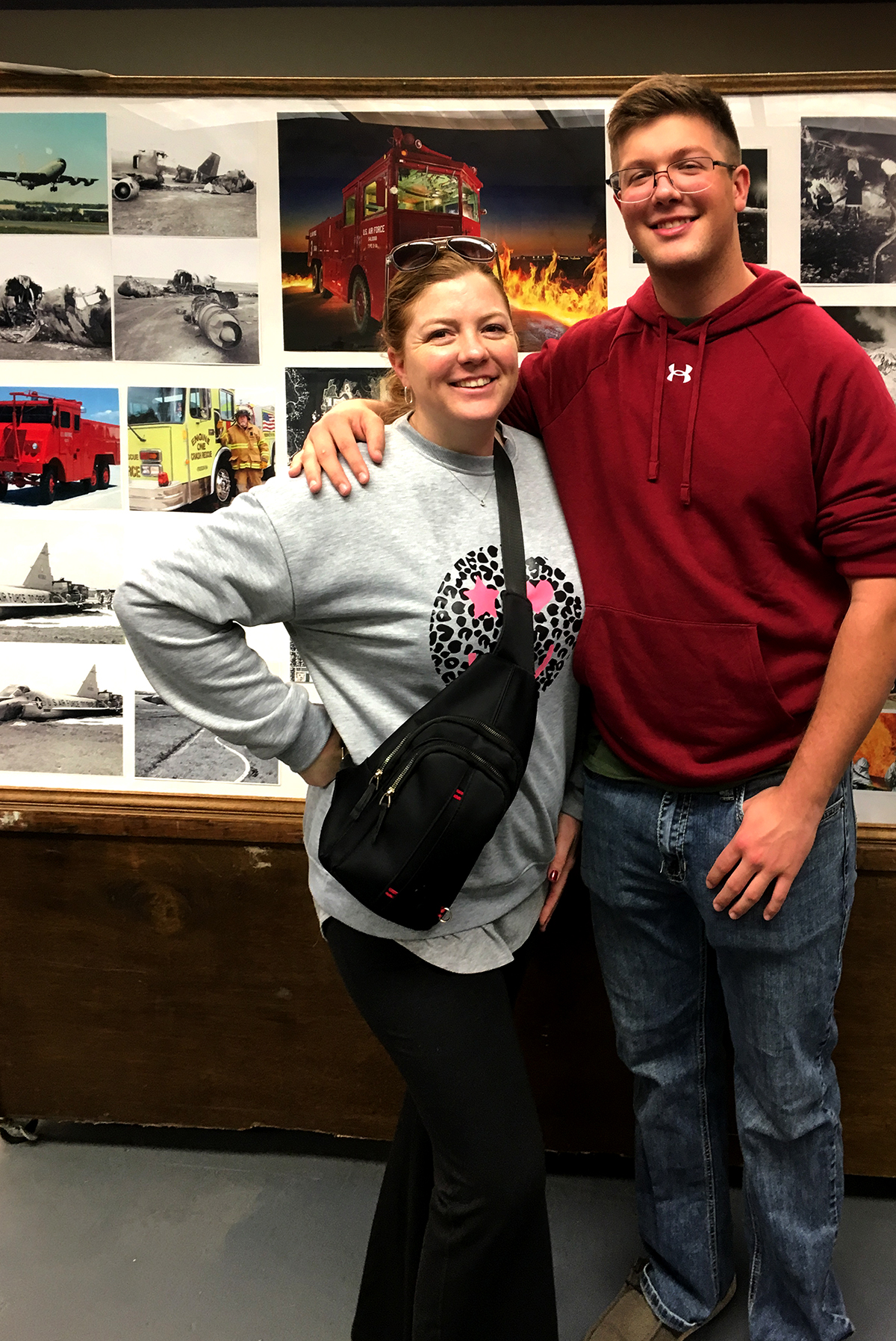 All visitors who come to the Military Museum of Fort Worth (MMFW) are VIPs; Very Important Persons. They are all different, come from various walks of life, from all over the United States, and even some from foreign countries. Many are veterans, relatives or friends of veterans, military and history enthusiasts, and sometimes just folks who like to walk through a museum to learn something new and satisfy their curiosity. In one way or another, MMFW fills a need for all these folks to a greater or lesser degree. They are all interesting in themselves, having different perspectives and stories of their own; and therefore, to MMFW, they are all VIPs. From time to time, we randomly select a person or persons who are visiting the Museum to be featured in this section.
All visitors who come to the Military Museum of Fort Worth (MMFW) are VIPs; Very Important Persons. They are all different, come from various walks of life, from all over the United States, and even some from foreign countries. Many are veterans, relatives or friends of veterans, military and history enthusiasts, and sometimes just folks who like to walk through a museum to learn something new and satisfy their curiosity. In one way or another, MMFW fills a need for all these folks to a greater or lesser degree. They are all interesting in themselves, having different perspectives and stories of their own; and therefore, to MMFW, they are all VIPs. From time to time, we randomly select a person or persons who are visiting the Museum to be featured in this section.
VIP Cont.
This issue’s Very Important Persons are Jessica Kennon, and her son Conner from Lovelady, Texas. Finding themselves in Fort Worth last December 27, Conner, a military enthusiast who had learned of MMFW, wanted to visit. Planning a career in the military for himself, Conner, who is 17 and a highschool senior, has already enlisted in the Texas Army National Guard’s deferred training program to become a Combat Engineer. Both he and his mom took their time as they worked their way through the museum, and spoke in glowing terms of their experience.
Conner and his mom are both bright, patriotic Americans who respect the military, its history, and its veterans. Congratulations on being MMFW’s VIPs for this issue of Dog Tags. We hope you come back to see us soon.
THE OLD GUARD BUNCH
Rodger Brownlee
The "Old Guard Bunch" is an informal gathering of military retirees and their significant others who meet from time to time (there is no specific schedule) at the Golden Corral Restaurant at the address below to enjoy a good meal, renew old friendships, rehash our military memories, and just laugh and have a good time.
If you would like to be notified of up-coming get-togethers, or have any questions, please call or email Bill Abernathy at 817-401-9237 or Bill.Abernathy@sbcglobal.net or Wanita Lovell at 817-992-4018 or lovellsfc@yahoo.com. If no one answers the phone, PLEASE LEAVE YOUR NAME AND NUMBER.
NORTH TEXAS OLD GUARD BUNCH
Meets at
THE GOLDEN CORRAL
3517 Alta Mere
Ft Worth TX (at Alta Mere and Camp Bowie)
817-377-1034
ALL SERVICES BRANCHES ARE WELCOME
(Remember, No Schedules, Membership or Dues, Just Good Fellowship)

